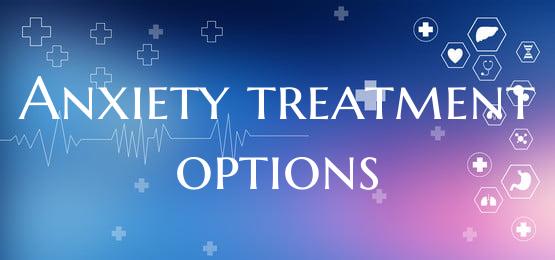
Anxiety treatment options
Anxiety disorders affect millions of people worldwide, causing persistent worry, fear, and discomfort that can significantly impact daily life. Fortunately, numerous treatment options are available to help manage and alleviate anxiety symptoms. By exploring the following effective anxiety treatment options, individuals can find relief and improve their overall well-being.
1. Therapy: - Cognitive-Behavioral Therapy (CBT): CBT is a common and highly effective therapy for treating anxiety. It focuses on identifying and changing negative thought patterns and behaviors that contribute to anxiety. Through CBT, individuals can learn coping strategies and relaxation techniques to manage their anxiety. - Exposure Therapy: This type of therapy involves gradually exposing individuals to feared situations or objects, helping them confront their fears and learn to manage anxiety responses. Exposure therapy can be highly effective for phobias and specific anxiety disorders. - Mindfulness-Based Therapies: Practices such as mindfulness meditation and acceptance and commitment therapy (ACT) can help individuals increase awareness of their thoughts and emotions, leading to better management of anxiety symptoms.
2. Medication: - Anti-Anxiety Medications: Prescription medications like benzodiazepines and selective serotonin reuptake inhibitors (SSRIs) can be prescribed to manage anxiety symptoms. These medications can help reduce feelings of anxiety and promote relaxation, but they should be used under the guidance of a healthcare provider. - Beta-Blockers: These medications are often used to control physical symptoms of anxiety, such as rapid heartbeat and trembling. They can be particularly helpful for situational anxiety, such as before public speaking or performances.
3. Lifestyle Changes: - Exercise: Regular physical activity can help reduce anxiety levels by releasing endorphins, the body's natural stress relievers. Engaging in activities like yoga, running, or even walking can have a positive impact on anxiety. - Healthy Diet: Eating a balanced diet rich in fruits, vegetables, whole grains, and lean proteins can support overall mental health and reduce anxiety symptoms. - Sleep Hygiene: Prioritizing good sleep hygiene practices, such as maintaining a consistent sleep schedule and creating a relaxing bedtime routine, can help manage anxiety.
4. Support Groups: - Joining a support group or engaging in group therapy can provide individuals with a sense of community and understanding. Connecting with others who share similar experiences can reduce feelings of isolation and offer valuable support and coping strategies.
5. Alternative Therapies: - Acupuncture: Some individuals find relief from anxiety symptoms through acupuncture, a traditional Chinese medicine practice that involves inserting thin needles into specific points on the body. - Herbal Supplements: Certain herbal supplements, such as lavender, chamomile, and passionflower, are believed to have calming properties and may help reduce mild anxiety symptoms. It's important to consult with a healthcare provider before incorporating herbal supplements into your routine.
In conclusion, finding the right anxiety treatment approach is a personal journey that may involve a combination of therapies, medications, lifestyle changes, and support systems. By exploring these effective anxiety treatment options and working with healthcare professionals to develop a tailored treatment plan, individuals can take positive steps towards managing their anxiety and improving their quality of life.